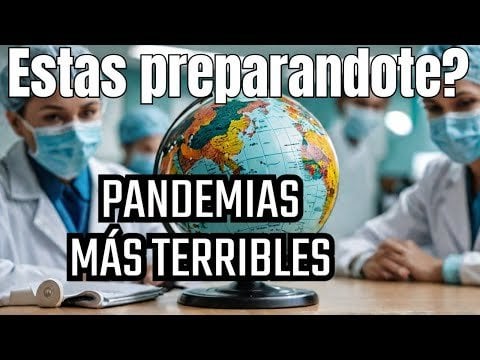Las peores pandemias del mundo! Que nos espera en el futuro?


Here is the content in Spanish with SEO tags added:
Nuevo invento: Las peores pandemias del mundo – ¿Qué nos espera en el futuro?
Las pandemias han sido una parte devastadora de la historia de la humanidad. A lo largo de los siglos, hemos sido testigos de algunos de los brotes más mortíferos que han diezmado poblaciones enteras. A medida que avanzamos hacia el futuro, surgen preguntas sobre qué nos depara el mundo en términos de nuevas pandemias y cómo podemos prepararnos para ellas.
Las peores pandemias de la historia
Algunas de las pandemias más notorias incluyen:
- Peste bubónica (Muerte Negra): En el siglo XIV, esta pandemia mató a aproximadamente 75-200 millones de personas en todo el mundo.
- Gripe española: En 1918, esta pandemia de influenza H1N1 cobró la vida de entre 50 y 100 millones de personas.
- VIH/sida: Desde su aparición en la década de 1980, el VIH/sida ha causado la muerte de más de 36 millones de personas en todo el mundo.
El futuro de las pandemias
A medida que la población mundial continúa creciendo y los viajes internacionales se vuelven más comunes, el riesgo de propagación de enfermedades infecciosas aumenta. Además, el cambio climático puede alterar los patrones de enfermedades transmitidas por vectores, lo que podría llevar a nuevos brotes.
Preparación y prevención: Es fundamental que los gobiernos y las organizaciones de salud pública inviertan en la investigación y el desarrollo de vacunas y tratamientos, así como en la educación y la concienciación sobre la prevención de enfermedades.
Colaboración global: La cooperación internacional es esencial para hacer frente a las pandemias futuras. Compartir información, recursos y estrategias puede ayudar a contener los brotes y mitigar su impacto.
Conclusión
Aunque no podemos predecir con certeza cuándo ocurrirá la próxima pandemia, podemos tomar medidas para prepararnos mejor. A través de la investigación, la innovación y la colaboración, podemos trabajar juntos para proteger a nuestras comunidades y mitigar las consecuencias de futuros brotes de enfermedades.
Palabras clave: pandemias, enfermedades infecciosas, salud pública, preparación, prevención, colaboración global, peores pandemias, futuro, gripe española, peste bubónica, VIH/sida

Las peores pandemias del mundo! Que nos espera en el futuro?
[matched_content]
Here are some important social SEO tags to include on your website:
1. Open Graph Tags:
– og:title: The title of your content as it should appear when shared on social media.
– og:description: A brief description of your content.
– og:image: The URL of an image to represent your content when shared.
– og:url: The canonical URL of your content.
– og:type: The type of content (e.g., article, website, video).
– og:site_name: The name of your website.
2. Twitter Card Tags:
– twitter:card: The type of card to be used when your content is shared on Twitter (e.g., summary, summary_large_image).
– twitter:title: The title of your content for Twitter.
– twitter:description: A description of your content for Twitter.
– twitter:image: The URL of an image to represent your content on Twitter.
– twitter:site: Your Twitter username.
3. Schema Markup:
– Itemscope: Defines the scope of the item being described.
– Itemtype: Specifies the type of item being described (e.g., article, product, person).
– Itemprop: Defines properties of the item (e.g., name, description, image).
4. Facebook-specific Tags:
– fb:app_id: Your Facebook App ID, which allows you to use Facebook Insights for your website.
– fb:admins: A comma-separated list of Facebook user IDs of the administrators of your website.
5. Pinterest-specific Tags:
– pinterest:rich_pin: Specifies the type of Rich Pin (e.g., product, recipe, article).
6. LinkedIn-specific Tags:
– linkedin:company: Your LinkedIn Company Page URL.
– linkedin:showcase: Your LinkedIn Showcase Page URL.
7. Google+ Tags (deprecated):
– google+:publisher: Your Google+ Page URL.
– google+:author: The Google+ profile URL of the author of the content.
8. Dublin Core Metadata:
– DC.title: The title of your content.
– DC.description: A description of your content.
– DC.creator: The author or creator of the content.
– DC.subject: Keywords or tags related to your content.
Remember to include these tags in the
section of your HTML and adjust the values according to your content. This will help optimize your website for social media sharing and improve your overall SEO.

